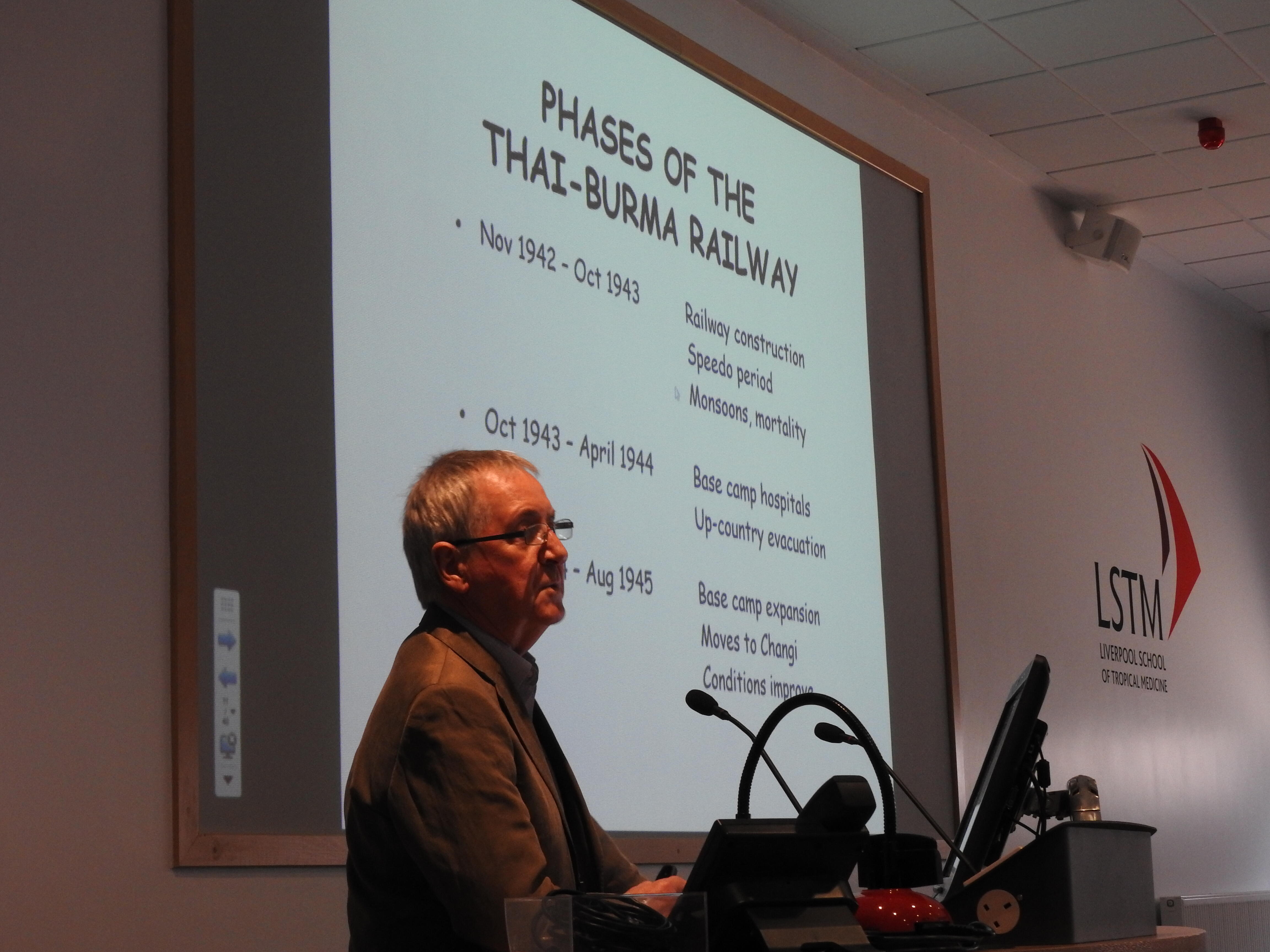
LSTM’s Seminar Series continued this week with a talk from Emeritus Professor Geoff Gill and Honorary Research Fellow Meg Parkes based on their new book and entitled Burma Railway Medicine – tropical diseases in Far East captivity (1942-1945) and its aftermath. LSTM’s Professor David Molyneux introduced the seminar.Burma Railway Medicine
As primary author of the new book Professor Gill began the talk by explaining that working in partnership with Far East prisoners of war (FEPOW) is LSTM’s longest running collaboration, spanning seven decades. He described the Far East theatre of war during WWII and Japan’s expansion into the region, capturing thousands of British and allied troops as well as many people living in the region.
Professor Gill started with the first of the camps at Changi,. describing their medical facilities with more than 1000 beds within Robert’s Hospital which saw over 40,000 admissions in the first year. The main admissions to the hospital were due to dysentery and beriberi, and the care of the prisoners was left to the military doctors among their number. From late 1942, men left for up-country camps to begin working on the Thai-Burma railway, which the Japanese intended to use to transport munitions and men to launch an invasion into India and beyond.
After looking at the different phases of construction of the railway, he went on to look at the major diseases that affected the men which along with dysentery and beriberi were tropical ulcer, cholera and malaria, giving a description of each of the conditions and how they were handled in the hospital camps. In terms of treatment the men often had to “make do”, putting together their own tools, and even in one case a dentist’s chair, utilising the conscripted “citizen’s army” with their combined extensive skills. This was particularly evident when it came to prosthetic limbs, with men often preferring to keep their “made” limbs rather than those produced in the UK on their return.
On their release and return to the UK in 1945 the men were told not to talk about their experiences, but their medical and psychological problems soon became apparent. Many of the men found their way to LSTM and from 1968 it became the designated centre for tropical disease investigations in relation to the FEPOW, with Professor Gill joining the team seeing to the men from 1975. The last TDI was carried out in 1999 and until that point and beyond there were still men suffering the effects of their captivity medically including nutritional neuropathy and strongyloidiasis. The phycological effects of their captivity were also examined and the FEPOW psychiatric syndrome was described, retrospectively seen as a form of post-traumatic stress disorder (PTSD).
Before concluding his talk with thanks, Professor Gill invited Meg Parkes to talk through her work collecting the oral histories from 67 FEPOW, on which the previous book by the pair, Captive Memories was based. She highlighted the role that LSTM played in looking after these men and the impact that it has had on how the physical and mental wellbeing of members of the military deployed to modern theatres of war. She played extracts from some of the recordings of the men looking back at their experiences of medicine within the camps.
A recording of the seminar can be found here.
Burma Railway Medicine: disease, death and survival on the Thai-Burma Railway, 1942–1945 is fully illustrated, over 250 pages, paperback with flaps, and priced at £14.99. It is available from booksellers and from the publisher itself with free UK delivery (use code TROPFP).
To order your copies call +44 (0)1524 840111 or visit www.carnegiepublishing.com
Also available is Captive Memories: Far East POWs & Liverpool School of Tropical Medicine, £12.99 and now in its second edition, using the same code as above for free delivery.